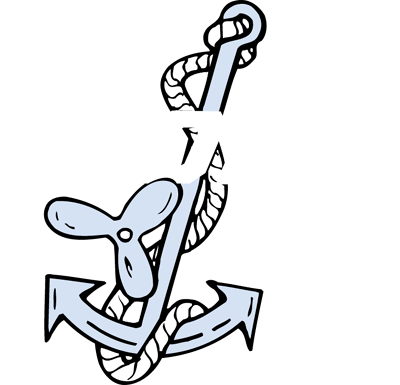Hail To The Chief!
BRIEFLY NOTED: USCG v. SALAMON
(APP. DEC. 2686) (May 22, 2010)
In the “What’s up with this case?” department, we could not help but to note this very curious reversal by the Vice Commandant of an ALJ license decision by none other than that lately very well-known Chief Administrative Law Judge, Joseph N. Ingolia. In that case, the CALJ bent over backwards to dismiss misconduct charges against a mariner without a hearing on the subject, and even without a motion from the mariner. After being charged with misconduct for not reporting a marine incident according to Coast Guard regulations, the Respondent executed a “Good Faith Deposit” of his license in November 2007; on March 10, 2008, the Coast Guard filed its complaint; on March 24, 2008, four months after making his deposit, the Coast Guard returned his license to the mariner. On May 2, 2008, the CALJ dismissed the complaint after finding, sua sponte, that the Coast Guard failed to follow regulations. Even more curiously, the CALJ ordered that the mariner’s record be expunged of any evidence of the casualty or of the four-month suspension. Naturally the Coast Guard appealed this decision, probably after recovering from an extreme case of shock.
To add the comic-opera flavor of this whole affair, the Coast Guard’s failure to identify the issues it wished to appeal in its appellate brief drew a noteworthy rebuke (albeit in a footnote) from the Commandant. The Respondent did not even appear in the appeal. The focal issue seems to have been whether the voluntary deposit agreement between the Respondent and the Coast Guard was, as stated by the CALJ in his dismissal order, a violation of law, due process or public policy, by virtue of the fact that it was tendered by the Coast Guard and executed by the Respondent BEFORE the complaint was filed. The Commandant stated that, while it did not condone the procedure (absent enabling regulations by the Coast Guard which did not at that time exist), it could find no prejudice to the Respondent’s rights because he got the deal he bargained for – agreement by the Coast Guard in advance of the complaint to seek no greater suspension penalty than the suspension amount stipulated in the deposit agreement. The CALJ’s justification for sua sponte dismissal was that the process embarked upon by the Coast Guard, by which much of the action occurred before the CALJ’s involvement because it occurred before the filing of the complaint, prevented him from ensuring that the Respondent “received full due process”. The Commandant disagreed, finding error. But more significantly, the Commandant also found that the CALJ abused his discretion by ordering the Respondent’s record expunged, because that sanction found no express support in statute or regulation. This decision stands out as a rather unusual rebuke of the CALJ widely thought to be one of the Coast Guard’s leading “home team judges”.
Evaluation
This decision is certainly fun to read, considering the possibly ignoble role that the CALJ has been accused of playing in the 2007 ALJ scandal. Apart from that, we can only surmise that there was something going on beneath the surface in this case, not apparent to the reader, but making an obvious determination on the outcome, that compelled CALJ Joseph Ingolia to cast aside his well-earned reputation as a stalwart “company man” and instead to champion the rights of a mariner. Fortunately for his hard-won reputation, the Commandant intervened to save the CALJ from himself.
